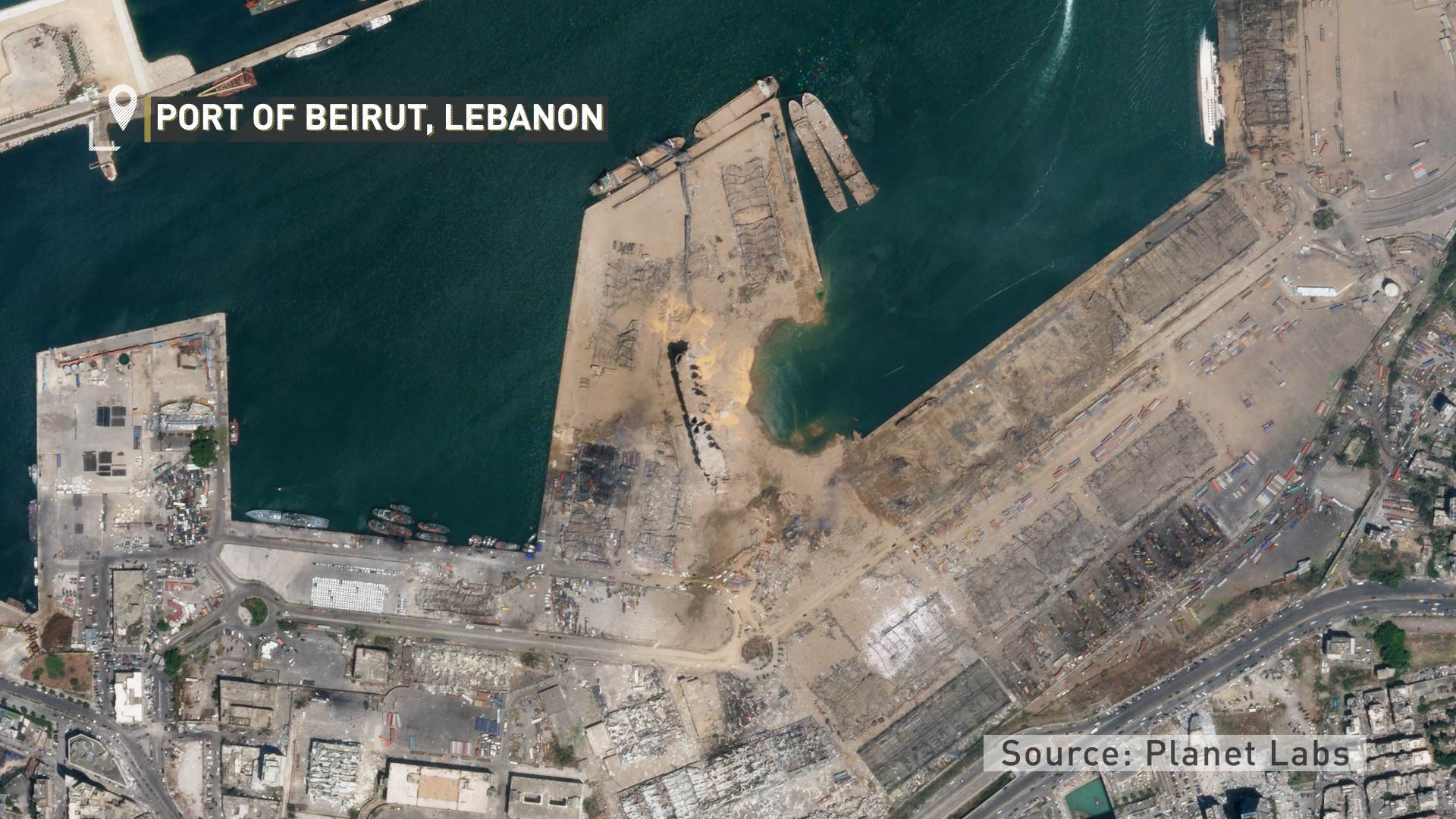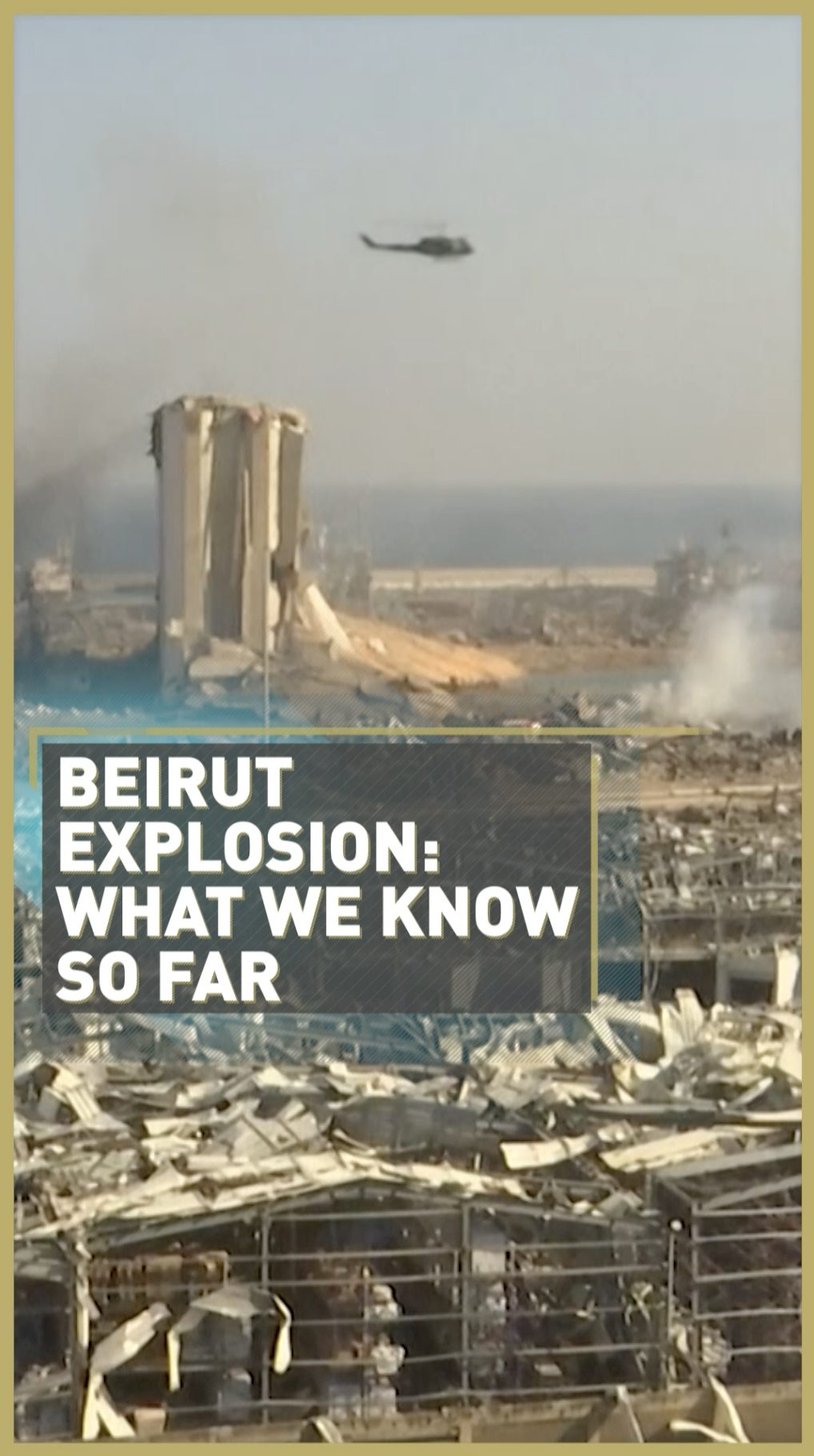00:09

Hours after a huge explosion in Beirut, neighboring countries and European states offered the city aid and medical assistance.
The blasts at Beirut's port killed over 100 people, injured 4,000 more, left around 300,000 people homeless and caused damage estimated to be worth up $5 billion.
The numbers of dead and injured are still rising.
03:11

France's President Emmanuel Macron was quick to show his support and has already announced plans to visit Lebanon on 6 August, two days after the explosion.
And two hours after the blast, at 6 p.m. local time, he wrote on Facebook to express his solidarity with Lebanon in both Arabic and French.
"I express my fraternal solidarity with the Lebanese after the explosion that caused so many victims and damage tonight in Beirut," he said.
"France stands alongside Lebanon. Always. Always. French aid and means are being transported to the spot."

The Lebanon prime minister has claimed the explosion was caused by 2,750 tons of ammonium nitrate. /AFP
The Lebanon prime minister has claimed the explosion was caused by 2,750 tons of ammonium nitrate. /AFP

The blast came from a major port in Beirut, which is close to shopping centers and nightlife districts. /AFP
The blast came from a major port in Beirut, which is close to shopping centers and nightlife districts. /AFP

An image of one of the hospitals that was damaged by the explosion on 4 August. /AFP
An image of one of the hospitals that was damaged by the explosion on 4 August. /AFP

French rescue workers before boarding a plane to Beirut. /AFP/ Bertrand Guay
French rescue workers before boarding a plane to Beirut. /AFP/ Bertrand Guay
The country sent two military planes to Lebanon this morning, with 55 emergency response experts on board, in addition to a mobile clinic able to treat 500 people at a time and an additional 15 tons of sanitary equipment.
Medical aid and equipment is needed in Lebanon because the country's hospitals were already overwhelmed by COVID-19 patients before the blast.
Several hospitals were also damaged and the Lebanese Red Cross is working with the country's Health Ministry to create emergency morgues because hospitals cannot deal with the influx of patients.
In addition, the European Union is sending rescue workers to Beirut.
The European commissioner for crisis management, Janez Lenarcic, said after the blasts: "The EU Civil Protection Mechanism is now coordinating the urgent deployment of over 100 highly trained firefighters, with vehicles, dogs and equipment, specialized in search and rescue in urban contexts.
"They will work with the Lebanese authorities to save lives on the ground."
Other European countries have also pledged their support. The Netherlands is sending a rescue team to the capital, including 67 firemen, police officers, doctors and nurses.
They will assist Lebanese emergency response workers as they look for people buried under debris.
Czechia will also send 36 rescue workers.

Lebanese rescue workers near the site of the explosion. The country's Red Cross has asked locals to donate blood. /Reuters
Lebanese rescue workers near the site of the explosion. The country's Red Cross has asked locals to donate blood. /Reuters
Russia will send five planes with medical equipment, medical personnel and a field hospital, while neighboring Turkey, Kuwait, Qatar and Iran have already sent medical aid.
The UK has said it is ready to offer aid to Lebanon, including to British nationals in Beirut, but has yet announced what that aid will look like.
Israel has also offered aid to Lebanon, despite tensions between the two countries.
Source(s): AFP
,Reuters